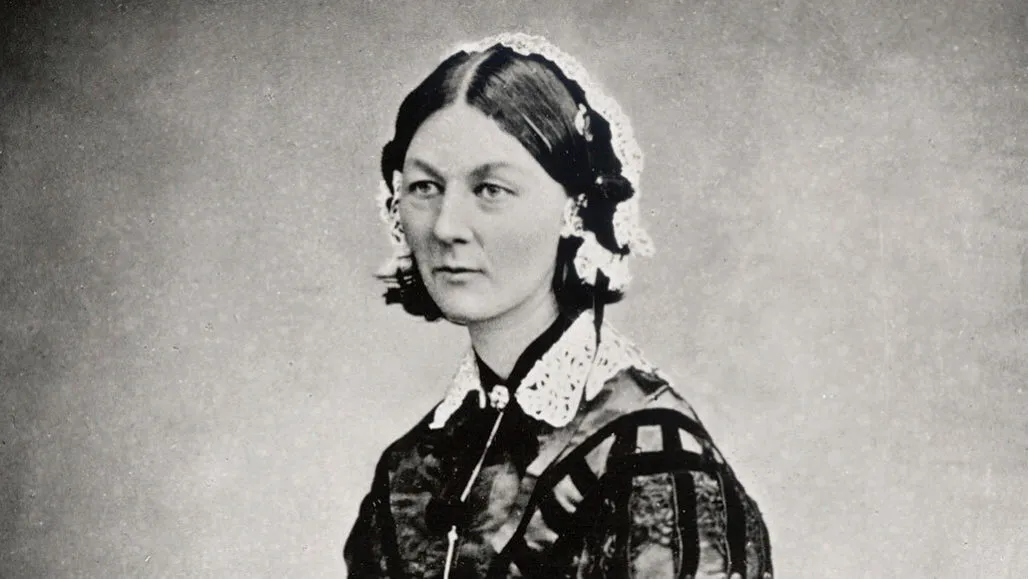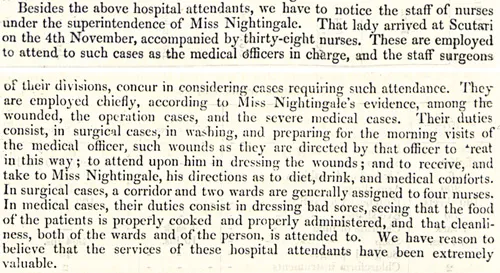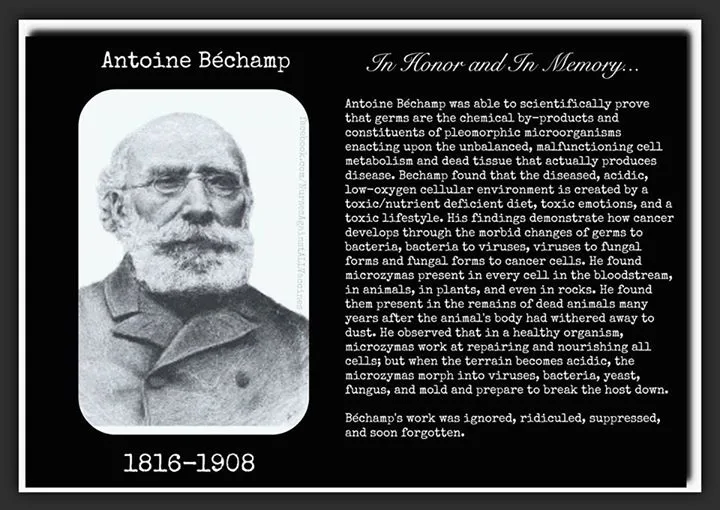When I was a teenager I went through a period of studying biographies & autobiographies of famous historical characters.
Florence Nightingale was one of the first to gain my respect & admiration. She became an icon, a heroine to me.

Now we hear her name every day since the UK Government chose to honour her by naming the temporary COVID19 hospitals after her.
But do they do her justice?
The Nightingale Hospitals lay unused & barely staffed which barely reflects the work & influence of the woman.
Some films, like this one from 2008, have attempted to convey the life of Florence Nightingale.
This one at least refers to her letters & reports.
Here is an extract from the ‘Report upon the state of the hospitals of the British Army in the Crimea and Scutari’

"Nightingale remained at Scutari for a year and a half. She left in the summer of 1856, once the Crimean conflict was resolved, and returned to her childhood home at Lea Hurst. To her surprise she was met with a hero's welcome, which the humble nurse did her best to avoid. The previous year, Queen Victoria had rewarded Nightingale's work by presenting her with an engraved brooch that came to be known as the "Nightingale Jewel" and by granting her a prize of $250,000 from the British government.
Nightingale decided to use the money to further her cause. In 1860, she funded the establishment of St. Thomas' Hospital, and within it, the Nightingale Training School for Nurses. Nightingale became a figure of public admiration. Poems, songs and plays were written and dedicated in the heroine's honor. Young women aspired to be like her. Eager to follow her example, even women from the wealthy upper classes started enrolling at the training school. Thanks to Nightingale, nursing was no longer frowned upon by the upper classes; it had, in fact, come to be viewed as an honorable vocation.
Based on her observations during the Crimea War, Nightingale wrote Notes on Matters Affecting the Health, Efficiency and Hospital Administration of the British Army, a massive report published in 1858 analyzing her experience and proposing reforms for other military hospitals. Her research would spark a total restructuring of the War Office's administrative department, including the establishment of a Royal Commission for the Health of the Army in 1857. Nightingale was also noted for her statistician skills, creating coxcomb pie charts on patient mortality in Scutari that would influence the direction of medical epidemiology."
Quoted from https://www.biography.com/scientist/florence-nightingale
During her work in Crimea she contracted the bacterial infection brucellosis, also known as Crimean fever, and would never fully recover. By the time she was 38 years old, she was housebound and bedridden.
She remained so for the rest of her life.
Brucellosis is now completely curable with anti-biotics over a 6 week period, however the disease is so debilitating that it was used as a biological agent in warfare by the US.
https://en.wikipedia.org/wiki/Brucellosis#Biological_warfare
Florence Nightingale, who would have celebrated her 200th birthday on May 12 2020, was also a statistician and a data visualisation pioneer who sought to illustrate that simple sanitation techniques could stop the spread of infectious diseases.
To view some samples of her charts & graphs please read this excellent article by Sujata Gupta:
https://www.sciencenews.org/article/florence-nightingale-birthday-power-visualizing-science
"Her passion for data saw her become the first female member of the Royal Statistical Society, while her invention of the coxcombe, an early version of a pie chart, used to show Queen Victoria and her government the connection between cleanliness and the mortality rate of British soldiers, is being used today to combat the current pandemic."
https://www.independent.co.uk/news/uk/home-news/florence-nightingale-birthday-anniversary-international-nurses-day-coronavirus-a9508876.html
Florence Nightingale's work reflected Bechamp's assertions that a body could not heal itself in a toxic environment.
“The specific disease doctrine is the grand refuge of weak, uncultured, unstable minds, such as now rule in the medical profession. There are no specific diseases; there are specific disease conditions.” – Florence Nightingale in quotation within this amazing book which explains the glaring differences between Bechamp & Pasteur:
https://www.mnwelldir.org/docs/history/biographies/Bechamp-or-Pasteur.pdf

August 13, 1910,Residing in Mayfair, she remained an authority and advocate of health care reform, interviewing politicians and welcoming distinguished visitors from her bed. In 1859, she published Notes on Hospitals, which focused on how to properly run civilian hospitals.
Throughout the U.S. Civil War, she was frequently consulted about how to best manage field hospitals. Nightingale also served as an authority on public sanitation issues in India for both the military and civilians, although she had never been to India herself.
In 1907, she was conferred the Order of Merit by King Edward, and received the Freedom of the City of London the following year, becoming the first woman to receive the honor. In May 1910, she received a celebratory message from King George on her 90th birthday.
She died on August 13th of that same year.
I have been considering how she would react if she were alive today, this year of the #PlagueOfFear2020.
She would probably have set herself the task of gathering accurate data & produced the most appropriate diagrams to show which measures would be most effective. She would obsess on environmental pollution as this was the one thing that she was unable to control during her efforts to save the soldiers lives in Crimea.
I am certain that she would consider all environmental factors as significant in the control of disease & would contend with the present government that the UK environment is not sanitary & requires closer attention, if we are to resolve our burden of diseases, not only COVID19.
She would observe & note that electro-magnetic radiation has become, since her lifetime, a major concern & should not be dismissed as a contributing factor to British health.
In support of that kind of attention to detail I produced a series of articles which include a huge number of declassified CIA documents, videos, articles & peer-reviewed studies to support the hypothesis that the electro-magnetic environment is seriously damaging the health of all life on this planet, not just humanity.
You can find the bulk of the evidence in Parts 2 & 3 linked here:
@francesleader/plague-of-fear-2020-part-5-revealing-the-conspirators-and-their-plans
----0----
If you like my work & want to see more, offer advice & info or ask questions you can find me on Twitter at:
https://twitter.com/2013Boodicca
Or on Facebook at:
https://www.facebook.com/franceselaineleader/
